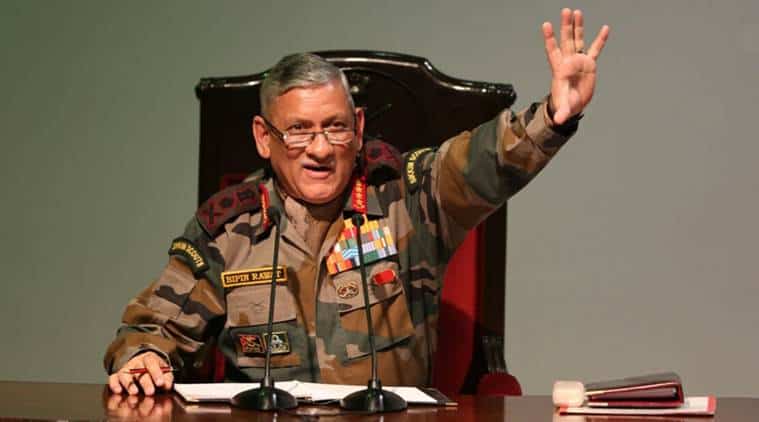BEIJING – China on Monday slammed comments by the Indian Army Chief Bipin Rawat as “unconstructive,” and said his remarks did not conform to the spirit of September talks in Xiamen between Chinese President Xi Jinping and Prime Minister Narendra Modi.
During last week’s press conference, Gen. Rawat had said that India needed to shift its military focus from its western border with Pakistan to its northern border with China. He had also observed that if China was strong, India was not weak either.
Besides, Gen. Rawat had highlighted the possibility of the return of Chinese troops to Doklam — an area that was the scene of a tense 73-day standoff between Indian and Chinese troops last year.
“During the past one year, relations between China and India witnessed some twists and turns,” Chinese Foreign Ministry spokesperson Lu Kang said in response to a question.
He underscored that in September, the leaders of India and China reached some important consensus on properly handling the differences and promote China-India relations.
“Recently, two sides enhanced dialogue on consultations, and bilateral relations have shown sound momentum of improvement and development,” he said, in an obvious reference to the visit to India by the Chinese foreign minister Wang Yi and State Councilor and Politburo member Yang Jeichi.
“Under such background, the unconstructive remarks by the Indian senior officials not only go against the consensus reached by the two heads of state, and do not conform to the efforts made by the two sides to improve and develop bilateral relations.” He added: “It cannot help to preserve tranquillity and peace in the border areas.”
When asked to spell out any specific remark of Gen. Rawat that had irked China, Mr. Lu said: “I have made myself clear. If the senior official according to the report referred to Donglang (Doklam), I think you are clear about our position – Donglang belongs to China and has always been in the effective jurisdiction of China.”
“The China border troops patrolling and stationed in the area are exercising our sovereignty rights. We hope the Indian side has learned the lessons of history and will avoid similar accidents to take place again,” Mr. Lu observed.
He added: “If he refers to the situation in the whole India-China boundary, I have also said that last September the two heads of state have reached important consensus during the Xiamen summit. Both sides have maintained effective communication since then.”
“The aim is to enhance strategic mutual trust and create enabling atmosphere for strategic communication. Recently the bilateral relations have shown positive momentum.”
But the remarks of the Indian official “go against the consensus of the states and do not conform to the general trend of improvement of bilateral relations”.
“We believe such kinds of remarks are not conducive to maintaining peace and tranquillity in border areas.”














